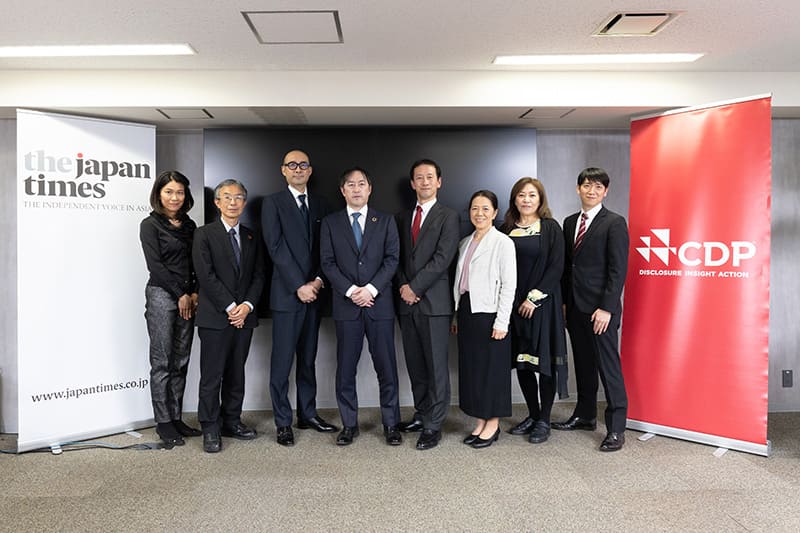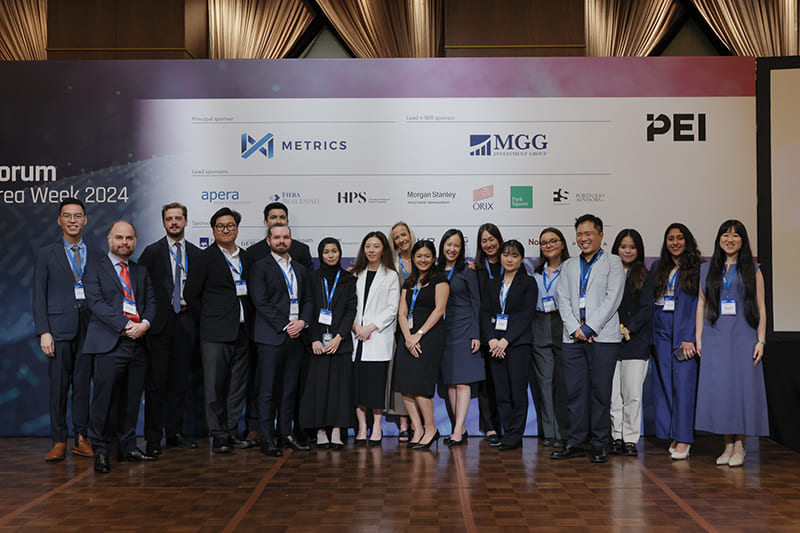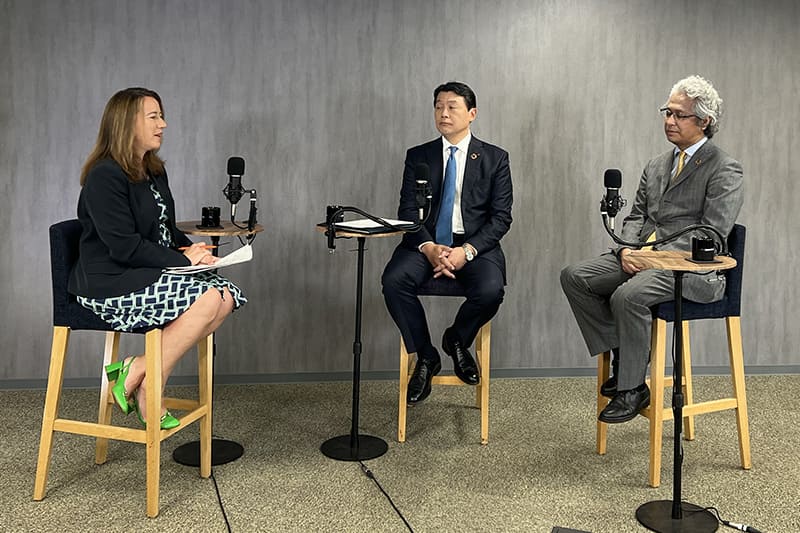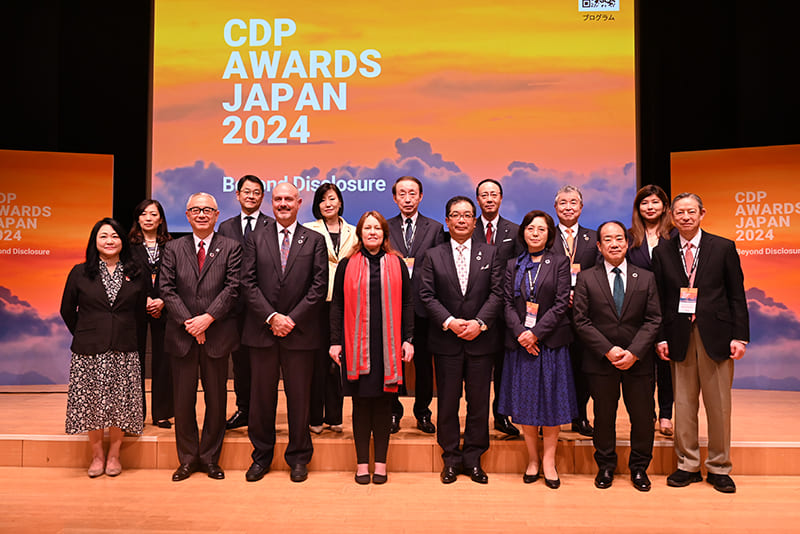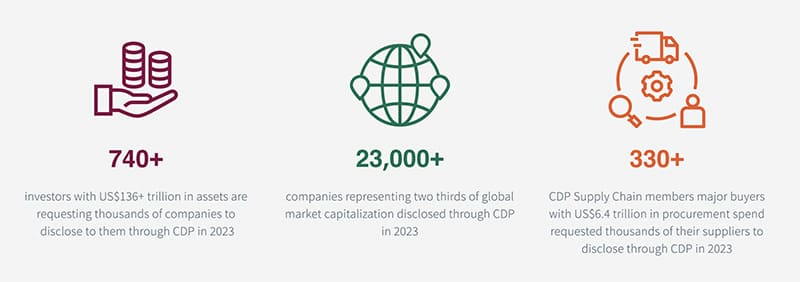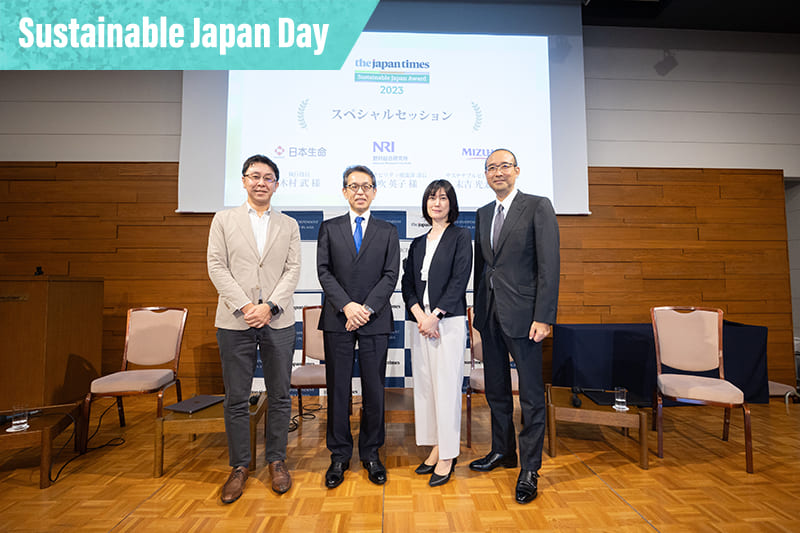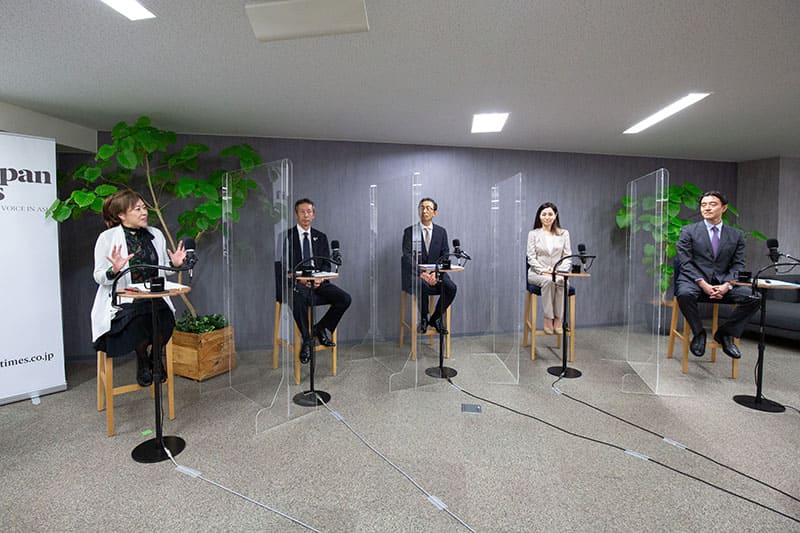January 03, 2022
At CDP symposium, representatives of banks and cities share views on their sustainable goals
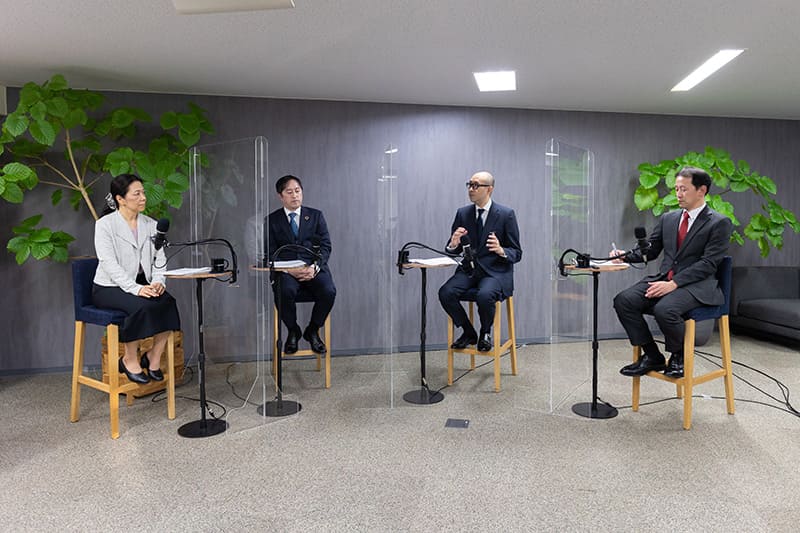
Businesses and actions that contribute to solving environmental and social issues are crucial to making all of society more sustainable. The problem is that no country has the luxury of waiting for them to gradually grow when there are so many issues represented in the U.N.’s 17 sustainable development goals (SDGs). Just climate change alone poses a significant challenge to all countries, as recently seen in heated discussions during the COP26 climate conference.
To accelerate the shift toward a more sustainable society, the role of finance is becoming increasingly important in supporting the players who are making changes. As part of the CDP symposium, an online panel discussion was held to share some examples of sustainable finance and examine how to make it more accessible.
Speakers from two banks, MUFG Bank Ltd. and Mizuho Bank Ltd., as well as one each from the governments of Kitakyushu and Tokyo, were invited to the session to share views from the perspectives of financial institutions and municipalities.
Akihiro Kato, managing director and head of the Sustainable Business Division at MUFG, said the bank made a declaration of carbon neutrality last May, targeting net-zero greenhouse gas emissions in its own operations by 2030 and across its entire portfolio by 2050.
Instead of addressing climate change outside its scope of business, MUFG’s policy is to connect its own business with solutions to environmental and social problems. One example of this actually being put into practice is its sustainability-linked loans, the first in Japan.
“These sustainability-linked loans use the result of a CDP scoring system as the ‘sustainability performance target,’ which means that the interest rate changes based on the score,” Kato explained. Launched in 2019, they also incorporate another first, a system in which the borrower donates to a municipal government what it earns from a preferential interest rate achieved through its efforts to maintain or upgrade its CDP score.
Kotaro Sueyoshi, a deputy general manager for sustainability and SDGs at Mizuho Financial Group Inc. and Mizuho Bank, said Mizuho Bank also employs CDP scores to measure nonfinancial information of companies, which is becoming increasingly important in the context of ESG (environmental, social and governance) investment. The evaluations based on CDP scores are used in providing various sustainability solutions to small and medium-size companies.
“Especially in the last few years, a greater sense of crisis and growing interest in SDGs and sustainability efforts are shared among small and medium-size companies,” Sueyoshi said. “We are making efforts to provide sustainability solutions suitable for different stages of life cycles of smaller businesses and to make sustainability-linked loans more available to them.”
He explained that sustainability-linked loans can be motivating to smaller companies because “the harder they work toward the achievement of their sustainability targets, the better their interest rates will be.” He added that such efforts help enhance a company’s value and reputation, which is beneficial even if it is not publicly listed. Sustainable finance has been considered as a new financial solution mainly for big enterprises, but Sueyoshi pointed out that there are many smaller companies within the supply chains of big companies.
Hiroaki Kurosawa, director of Global Financial City Tokyo in the Tokyo Metropolitan Government, noted that small and medium-size companies will also be asked to disclose information on their environmental impacts in the near future.
Emiko Murakami, director of the Environmental Innovation Support Division of the city of Kitakyushu, introduced the city as a center for small and medium-size enterprises in the supply chains of larger companies. The city has set a target of reducing emissions 47% by 2030 and achieving net zero by 2050, and Murakami said it has been successful so far in keeping emissions on a decreasing trend. “But in order to achieve the targets, we need to work harder to reduce the emissions from the industrial sector, which make up one-third of all the emissions in this area,” she said.
“The city has collaborated with local banks to provide loans of \600 million ($5.3 million) to the environmental industry,” she said, but she also pointed out that loans and subsidies for facility costs would be necessary for companies in greater need. She also highlighted that it is difficult for small regional businesses to measure and disclose their environmental impact without any support.
The Tokyo Metropolitan Government, which is committed to building a green finance market that contributes to solving social and environmental challenges, issued a ¥40 billion Tokyo Green Bond in 2021, and also provides support for private enterprises that intend to issue green bonds, subsidizing the cost of external evaluation. “If you use this subsidy in combination with the subsidy offered by the Environment Ministry, the expenses for the external review can be reduced by 90%,” Kurosawa said.
With banks and local governments playing their part, and companies of all sizes sharing greater awareness on their environmental impacts, building a stronger network of all these players would be the next step. Kato from MUFG Bank said the key is “inclusion.” “Emissions reduction targets are not something that can be achieved by the intensive efforts of the minority,” he said. To engage more parties, he said, local governments must play the crucial role of creating and executing concrete plans and systems “so that companies will be secure enough to take on challenges.” He added, “We would also like to provide support as a financial institution.”
Sueyoshi from Mizuho Bank agreed and said it is important for each region to create its own detailed plan because “sustainability is often discussed on the global scale, but challenges are actually local, which is why the role of municipalities is big.” Kitakyushu’s Murakami said the city’s government, as a hub to connect the administrative side, industries and citizens, will try to collaborate more closely with financial institutions. Sueyoshi, representing financial institutions, said, “It is the role of banks to support whoever is taking on new challenges when society is undergoing a shift.”
